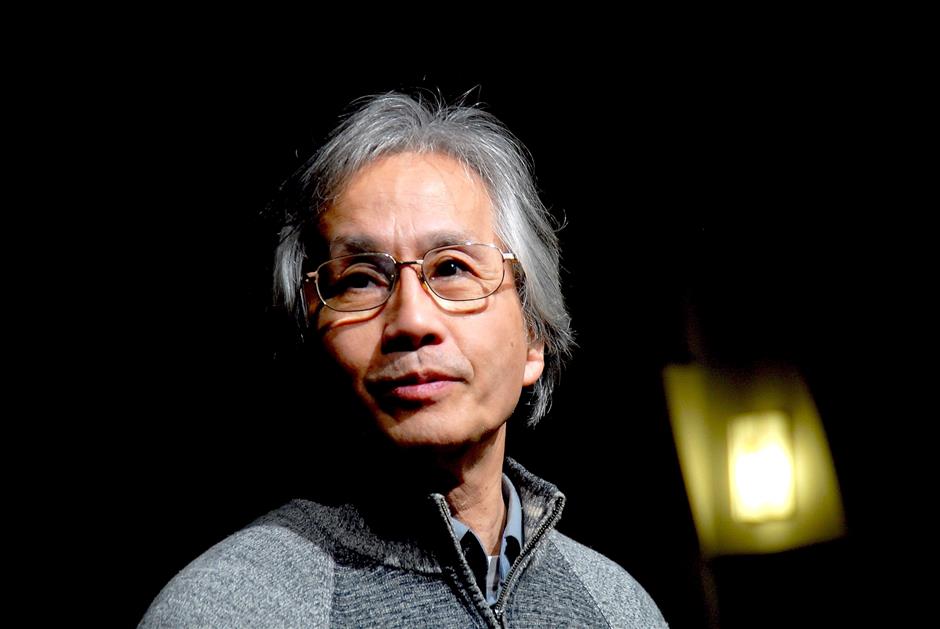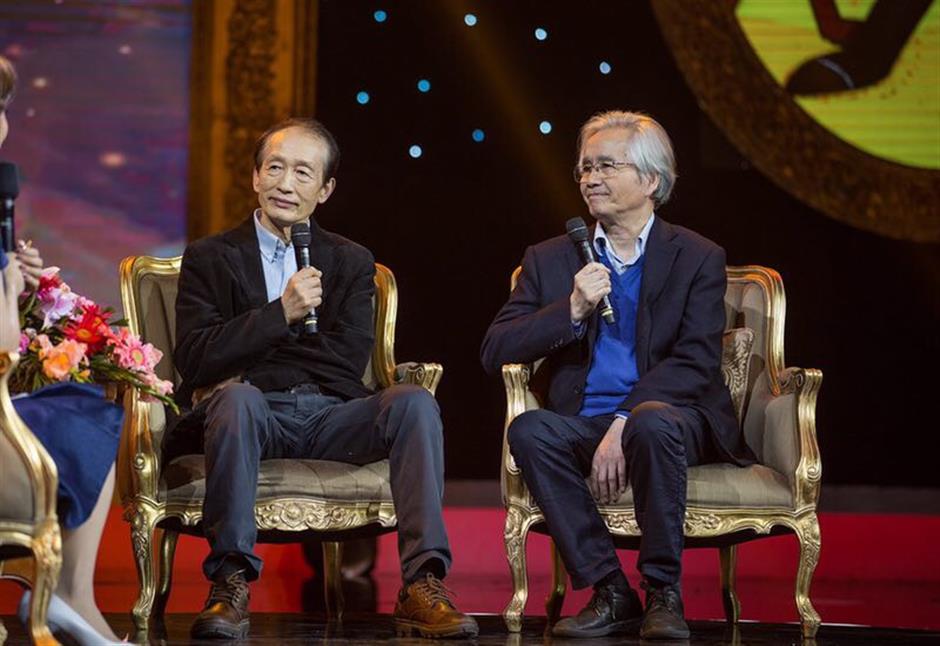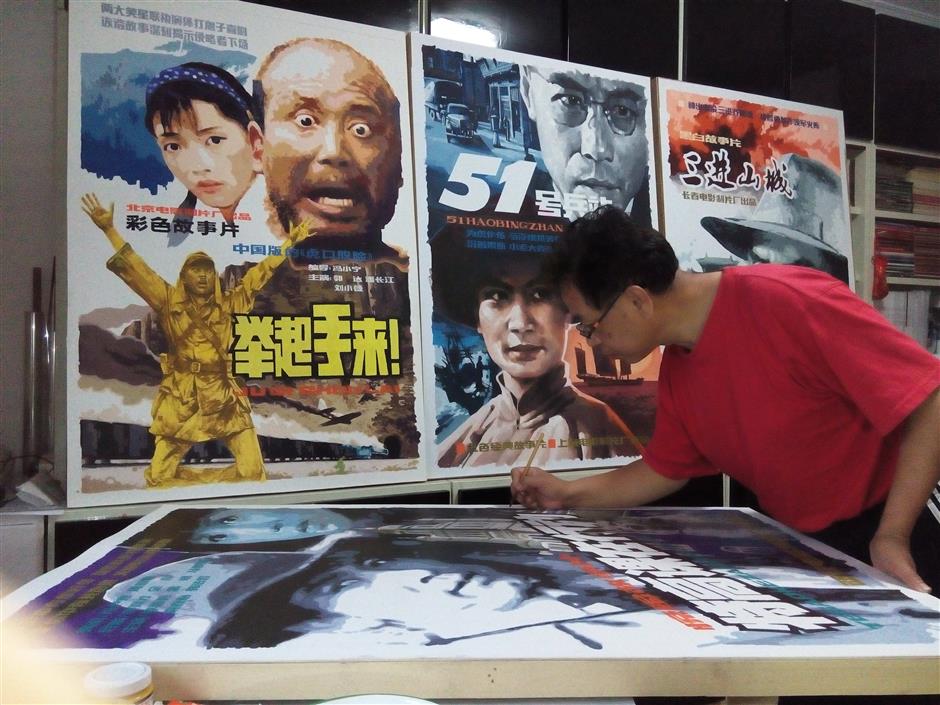That's entertainment! The movie industry sheds its leaden image
This year’s Shanghai International Film Festival, which starts today and runs through June 25, will highlight the achievements of the past 40 years of Chinese cinema.
It’s a remarkable history. China, with more than 50,000 screens and box-office revenue of almost 56 billion yuan (US$8.88) last year, is on track to surpass the US as the world’s largest movie market.
Films here, which were once quite serious, now cater to a much more diverse market. In short, they have become very entertaining and sophisticated in production technology.
To commemorate the 40th anniversary of China’s reform and opening-up to the world, the Shanghai film festival this year will host exhibitions of 180 Chinese film posters and a history of cinema that includes video clips and awards.
A film retrospective will provide insight into the vicissitudes of life in past eras.
To gain personal insights into the industry’s progress, Shanghai Daily talked with Jin Fuzai, a film and theatrical music composer; Li Shude, a veteran movie poster designer; and Huang Ying, a dubbing artist.

Famous composer Jin Fuzai has created the music for many famous movies and musicals.

Jin Fuzai (right) and Chang Guangxi, director of the animated film "Lotus Lantern"
Music sets the mood, augments the plot
Jin Fuzai has been composing scores for movies and stage musicals since the late 1960s. His long list of credits includes the animated short film “Three Monks,” the poetic animated film “Feelings of Mountains and Waters,” Xie Jin’s drama “Bell of Purity Temple” and the historical romance “Red River Valley.”
He has twice won Golden Rooster Awards for his film scores.
“A good story always is the foundation of a good film,” Jin says. “But film is a comprehensive art. It also requires good acting, good cinematography and good music. Many award-winning film directors attach great importance to the role of music in a movie.”
Jin says inspiration for movie scores comes from the scripts and from his interaction with directors. In animated movies without much dialogue, the music helps move the story along and keeps its elements integrated.
He wrote the theme song for the first Shanghai International Film Festival and scores for the festival’s awards ceremony.
“China’s reform and opening-up has provided filmmakers with more freedom and a wider platform to create,” Jin says. “We have seen big progress in artistry and cinematography of Chinese movies. More and more domestic productions win honors at international film festivals.”
However, Jin says Chinese filmmakers need to break from a certain copy-cat mentality and create more of their own original stories.
“When a kind of film succeeds at the box office, filmmakers shouldn’t swarm to make more movies in the same vein. They must cultivate originality,” he says.

Li Shude works on a movie poster.

Li Shude (right) with veteran actor Liang Boluo, a lead role in the film "51 Depot"
What’s on at the flicks? Keeping us posted
Li Shude took up movie poster designing and painting in the early 1990s.
“At that time, we painted about five large film posters every month,” Li recalls. “It was time- and energy-consuming. Before we conceived the images, we spent a lot of time watching the film and searching for relevant materials.”
Failing that, Li has to come up with his own concepts.
“I remember there was once a Hong Kong film dealing with gambling, but we didn’t have any video material about that,” he recalls. “Based on the film synopsis, I created a poster featuring a large poker card, on which I printed the movie title and cast.”
Posters are important, Li says, for the marketing and distribution of movies. Celebrated film actress Qin Yi once said a poster is the “calling card” of film art.
“Since reform and opening up, Chinese cinema has improved a lot in diversity of genres and stories,” Li says. “A large number of films from all over the world are offered to Chinese audiences every month. With more film theaters built in smaller cities around China, movies have become an integral part of many people’s leisure lives.”
Li says he doesn’t consider all films worth watching.
“Some are vulgar and senseless, even in their titles,” he says. “Many movies are produced just to please audiences or make big commercial returns. Chinese filmmakers should never stop making movies of positive energy. They should tell better and more inspiring stories about China.”
He praises the Shanghai International Film Festival for its dedication to progress in the industry and says it’s a great event for movie buffs.

Dubbing artist Huang Ying
The voices behind the faces in films
Huang Ying, dubbing director and voice artist at the Shanghai Film Dubbing Studio, graduated in acting from the Shanghai Theater Academy. She has successfully given voice to the Chinese versions of many foreign films, including Hermione Granger in the “Harry Potter” series, Mal in the sci-fi film “Inception” and Sylvanas in the fantasy video games “Warcraft.”
China’s opening-up to the outside world has contributed greatly to the development of dubbing, she says.
“Dubbers in China used to exaggerate acting for the characters, with stereotyped lines,” Huang says. “At that time, film acting didn’t differ much from theater.”
Globalization has meant that film professionals in China can draw on the expertise of peers in Hollywood and Europe.
“Chinese cinema is now flourishing,” she says. “With more investment in the industry, more blockbuster movies with stunning visuals have emerged.
“Ordinary people can also upload their own micro-movies onto video-sharing websites. The dream of film is no longer far from everyday lives,” she adds
Huang says she hopes the industry will continue to progress by making more artistic and thought-provoking Chinese films. Once a volunteer working at the Shanghai International Film Festival, she says she is always impressed by the films screened and the forums organized for the event.
















